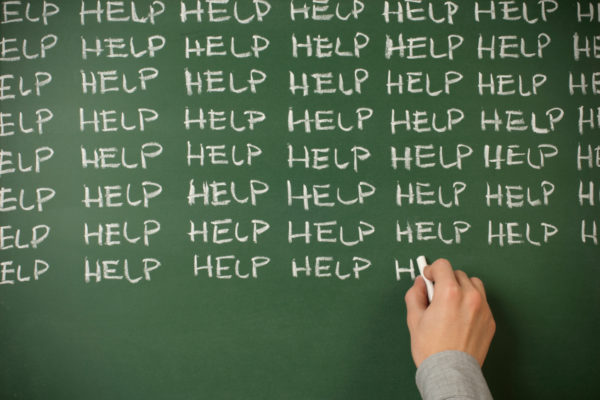Politicians always seem to place some blame on public schools for society’s problems. The most recent being Lt. Gov. Dan Patrick’s comments that connected the El Paso shooting to the removal of prayer from schools.
The comments are not surprising. Public schools are often scapegoated for social issues that politicians fail to address. However, such remarks are ironic given that school and school district personnel are often on the front lines responding to public crises, including mass shootings.
The El Paso Independent School District serves as yet another example of how public schools exert leadership in times of crisis. EPISD rapidly mobilized in support of the community immediately after the horrific attack on a Walmart that left 22 dead and dozens injured.
EPISD police officers working in the area were first responders who rushed to the scene, while district leaders coordinated efforts to make the district’s resources available to first responders and city government officials.
School district personnel in collaboration with the school’s principal opened nearby MacArthur Intermediate School, with off-duty staffers arriving as soon as possible to coordinate a system of care to affected community members. The school served as a family reunification location for loved ones seeking to reconnect with each other amid the chaos.
This site was also where very unfortunate families learned that loved ones were killed or injured. And school counselors offered their services free of charge to community members suffering from the loss of family members or other loved ones.
Have any politicians pointed out these facts?
Schools also served as sites where other community-based organizations could coordinate services to help families and those affected by the violence. They served as sites for families to convene, find solidarity, grieve, express their feelings, and attempt to make sense of and begin to heal from such horrible events.
In less than a month, students will return to schools across Texas with questions and concerns. Teachers will help students process the senseless violence. One school will grieve the loss of 15-year-old Javier Rodriguez, the youngest victim of the El Paso shooting.
Such efforts by districts such as EPISD are common in the wake of violence, natural disasters and other events that disrupt communities and families. Schools are shelters and town halls.
Unfortunately, these efforts often go unnoticed, especially by legislators and state policymakers who scapegoat and undermine public education. School officials do not brag or seek attention for their efforts, but they should be recognized.
The efforts of public schools in support of their communities reflect educators’ moral commitments to their students and families. Not only do these commitments deserve the public’s acknowledgement, they necessitate that public schools have a voice in shaping policy solutions.
More of us need to be thankful for the work of our district and school leaders. Policymakers must listen to educators as the nation and state debate gun reform, the rising tide of hatred, and the shortcomings of a health care system that is broken and unable to meaningful promote mental health for all.
Moving forward, it is imperative that policymakers invite district and school leaders, teachers and counselors to public hearings to give their testimony. These individuals are connected to their communities and uniquely positioned to provide important insights into pressing social problems. Their perspectives can bring moral clarity to toxic and overheated political debates that have been unable to generate meaningful legislation and reform.
Public schools should not be the scapegoat for society’s problems or politicians’ failures to address such pressing issues. Instead, public schools and their leaders should have a greater role in providing policymakers and politicians with insights into next generation policies.
David DeMatthews is an associate professor in the Department of Educational Leadership and Policy at The University of Texas at Austin.
A version of this op-ed appeared in the Houston Chronicle, San Antonio Express News, Corpus Christi Caller Times, San Angelo Standard Times, Waco Tribune Herald and the Tallahassee Democrat.




